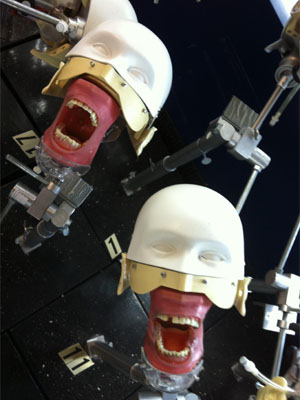Image
 When it is said that people think “backwards” in the modern time, it is meant that they have no goal, and as a result they do what their impulses lead them to, and then argue that it was a great success.
When it is said that people think “backwards” in the modern time, it is meant that they have no goal, and as a result they do what their impulses lead them to, and then argue that it was a great success.
For example, if you accidentally get drunk and sleep through February and get fired, you didn’t like that job much anyway. If your girlfriend leaves you, you’ve moved on to greener pastures. Image is more important than reality because you get rewarded if people believe the image. It’s like selling a product: it doesn’t matter if the product works, so long as a lot of people buy it.
Appearance rules us because we are all equal and we have no collective goal, values or consensus. The two work together and create each other. If there is no goal, all that is left is making people happy, and equality is the great crowd pleaser! If there is equality, there can be no goal, or someone will feel unequal.
Since we are all at the same level, the only task that remains is to rise above that level. We can do this with ability or with money, but because the crowd does not respect money (since not everyone has it) and only respects ability in entertainment and sports, we must please others socially.
That in turn requires that we distinguish ourselves not by being morally good, or good at things, or even successful, but by making other people feel warm fuzzies about themselves. Count the ways: rock songs that make people feel their desires are important, ad slogans that emphasize green ecology and hip product design, flattery and validation for all the equal people in the room.
Our use of this pandering populism in turn makes us feel a debt is owed to us by the world. After all, we burned our egos on the altar of contorting ourselves into a form to please others. But we can’t stop pleasing others. So in private, we become rapacious and greedy. Equality does this to us.
Even further, we become addicted to image like the addict to the needle. We need others to like us, not only for social prestige, but for political and economic power. At that point, who we are matters little. What matter is what we project, and whether others find it intriguing and pleasing.
We become experts at covering up our failures, putting “spin” on our near-misses, and promoting ourselves relentlessly if we achieve anything even a tenth notable. We trade our autonomy for following the herd and pleasing them. And we live in fear that our image, which is inevitably at least part false, might be pierced.
Teenagers grow up loathing their parents because they see how false the image is. How parents socialize with people they hate, for a job. How the appearance of a happy family is maintained at all costs, and how pictures of children and grandchildren are placed strategically for visitors, with humble bragging carefully scripted into each interaction.
It’s like we are always selling ourselves, or arguing in our defense. “See me? I’m important, and I’m morally better than you, and in fact having a fascinating life while you’re not,” we scream out through every details of our lives. The luxury products we buy. The hobbies we pursue. How we brag about our children, our spouses, our money, our pasts, our conquest and our dreams.
This society has become like a used car salesperson convention. We are experts at hiding blemishes and hyping minor advantages into strengths. We wield apocalyptic fear as the other side of the pincher, squeezing people toward us and then dazzling them.
What we do not do is content. That requires forward thinking: a goal, values, a sense of what we internally find fulfilling. Like the scales of justice, the internal and external constitute one combined weight, and the more of one there is the less of the other there can be.
Like monkeys that got too clever in a lab experiment, we are clever but not smart. We have figured out ways to fool each other into thinking we are all important. But in private we lament the lack of meaning, neglecting to mention that we have systematically removed the sources of meaning, simply from fear.
Tags: cognitive dissonance, crowdism, inverted society, reversed cognition









